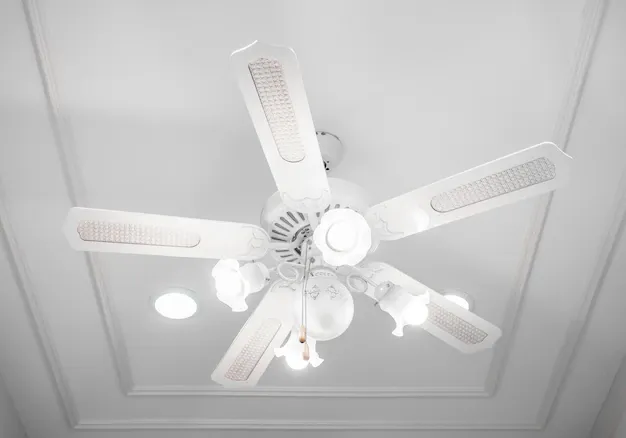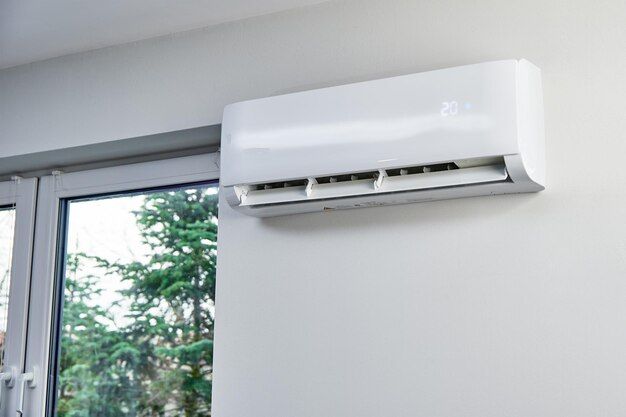
Get A Quote
Ceiling Fans Vs. Air Conditioning: Which One is More Cost-effective?
When dealing with hot weather, two commonly considered options are air conditioning and fans. In this article, we will assess air conditioning and ceiling fans based on cost, comfort and overall effectiveness, aiding you in making the optimal decision for your residence or business.
Pros of Ceiling Fans
They don't hog electricity like their heavyweight counterpart, the air conditioner. Fans are like the frugal friend who gives you comfort without burning a hole in your pocket. They use way less energy, and you won't be left sweating when the electricity bill arrives.
The best part? Ceiling fans are multitaskers. They not only keep you cool in the summer but can also be reversed to circulate warm air during the winter. Talk about a year-round buddy!
Air Conditioning: The Power Player
Pros of Air Conditioner
Now, let's talk about the air conditioner - the real MVP in extreme heat. It's like having your personal iceberg on standby. But, here's the catch: it's a power-hungry beast. When the heat is relentless, it gulps down electricity faster than you can say "cool breeze."
Sure, it's fantastic at turning your home into an ice palace, but the cost can make your wallet shiver. If you're not careful, those summer electricity bills might give you a chill that's not from the air conditioner.
Comparisons of Ceiling Fans and Air Conditioner
Cost
Let's get real about numbers. Ceiling fans are the thrifty choice, using only a fraction of the energy an air conditioner devours. The initial cost of an air conditioner and its maintenance can make you rethink your cool strategy. On the flip side, ceiling fans are budget-friendly from the get-go and won't break the bank when it's time to fix them up.
Comfort
But hey, comfort is king, right? Air conditioners do have the upper hand in extreme heat. If you live in a scorching climate, that icy breeze might be worth the extra penny. However, for most of us, the gentle hum of a ceiling fan is all we need to keep cool without the shock when the electricity bill arrives.
Cooling Effectiveness
Air conditioners can swiftly lower the room temperature, ensuring a pleasant atmosphere even on sweltering summer days. They prove especially effective in humid conditions, where fans may fall short in delivering sufficient relief. Ceiling fans, although not as potent as air conditioners, induce a cooling effect by circulating air and encouraging skin evaporation. It's important to note that fans don't actively reduce the room temperature; they merely create a sensation of coolness by generating a breeze. In situations of intense heat and humidity, fans may not offer satisfactory relief, making air conditioning the preferred choice.
Maintenance
Air conditioning systems demand more frequent maintenance for peak performance and durability. Regular checks on filters, coils, and refrigerant levels are essential, and any problems should be swiftly handled by a skilled HVAC technician. Adequate maintenance not only prolongs the life of an air conditioning system but also enhances its cost-effectiveness in the long run. On the contrary, ceiling fans boast simplicity with minimal moving parts, making upkeep and repair straightforward. Routine cleaning, mainly to eliminate dust and dirt accumulation, is typically sufficient to maintain the fan's smooth operation. Moreover, ceiling fans tend to outlast air conditioning units due to their fewer components prone to malfunction.
Environmental Impact
Air conditioner contributes to higher energy consumption and may use refrigerants with environmental concerns, while the ceiling fan stands out as an eco-friendly option, consuming less energy and having a lower environmental impact.
Conclusion
So, what's the final word? If you're all about keeping cool without burning through your savings, ceiling fans are your go-to heroes. They're budget-friendly, energy-efficient, and versatile. However, if you're battling scorching temperatures day in and day out, the air conditioner might be your savior, albeit a costly one.

